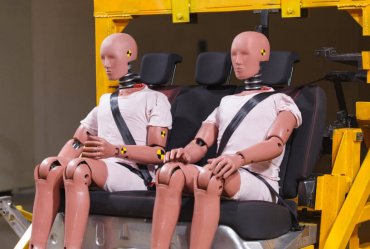
Whether it’s an accurate prediction or just wishful thinking, the president of Lyft believes the days of car ownership are numbered. John Zimmer, the 31- year-old president of the ride-hailing startup company and competitor of Uber, thinks that over the next five years or so, the majority of millennials will be less interested in buying a car – or car insurance for that matter.
This, of course, could spell bad news, not only for auto makers and their dealerships, but for the auto insurance industry as well. Zimmer cites a number of reasons for his bold prediction – and he has the facts to back it up.
Those facts suggest the president of Lyft could very well be right. As it turns out, according to a study conducted by the AAA Foundation for Traffic Safety, from 2007 to 2011, Americans between the ages of 18 and 34 bought a staggering 30% fewer cars.
While no specific reasons were attributed to the decline, Zimmer won’t go so far as to say it’s due to the ease of using Lyft and its main rival, Uber. But, he does point to something much more fundamental in American society as a possible factor – the car itself.
In other words – in the past, the car used to be the symbol of American freedom, but that may no longer be the case. The dream of driving the open road – and the idea that no one could keep you anywhere you didn’t want to be – has seemingly gone the route of low gas prices.
Things are different now. Owning a car is a huge expense every year – between loan payments and auto insurance payments – to regular upkeep and gas. The physical freedom that used to be so highly regarded comes at the cost of economic freedom, and Zimmer thinks millennials – his generation – are fed up.
However, although Lyft and Uber both envision a future in which no one owns cars with delight, other tech power players aren’t necessarily going all out in that direction. In fact, Google-owned Waze recently announced the carpooling app, RideWith, which will debut in Israel.
RideWith will match drivers with passengers who normally take a similar route from home to work. Unlike Lyft and Uber – passengers will pay drivers a small fee for the ride – basically to cover the cost of wear and tear. Furthermore, drivers will only be allowed to make two trips per day – meaning, they won’t be able to start a side business or earn a living driving for RideWith.
That said, Google could be testing the waters for a Lyft and Uber competitor, though RideWith doesn’t appear to be doing much to undercut the consumer car market – so far. One must also remember – Google has been pouring capital into the development of self-driving cars, which makes it somewhat unclear whether our driving future will rest on car ownership or our complete reliance on a company like Lyft or Uber.
Until that time comes, you still need to find the best auto insurance rates available. So, don’t settle for paying more than you should for your coverage. Why not get a free auto insurance rate comparison today?
Do you plan on holding onto your car or do you think companies like Lyft and Uber are a sign of the future? Feel free to share your thoughts in the comments section below.



